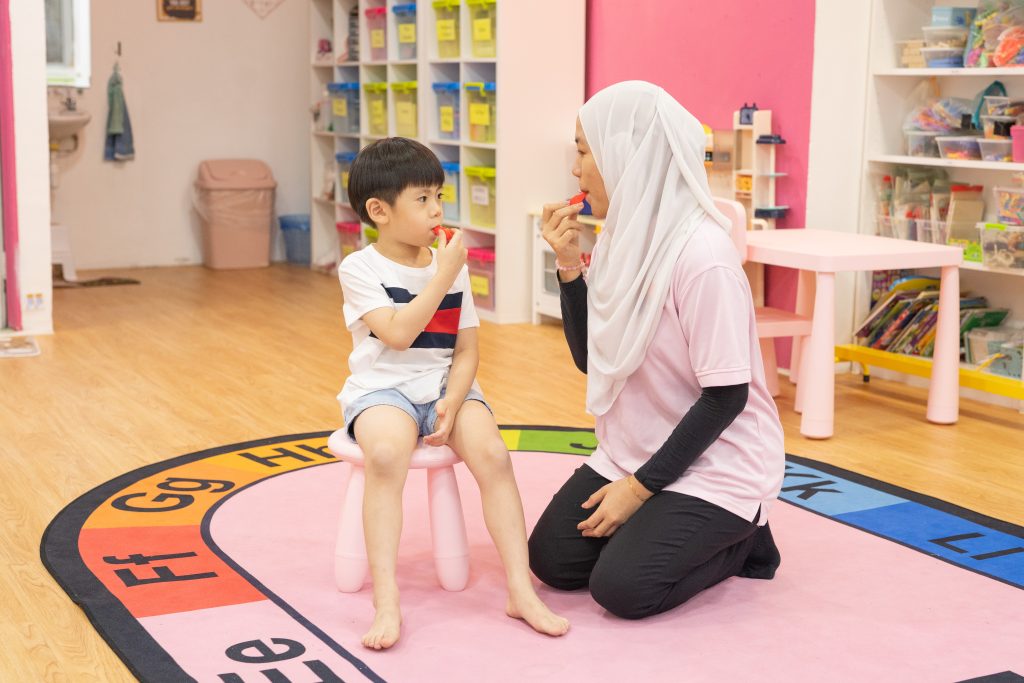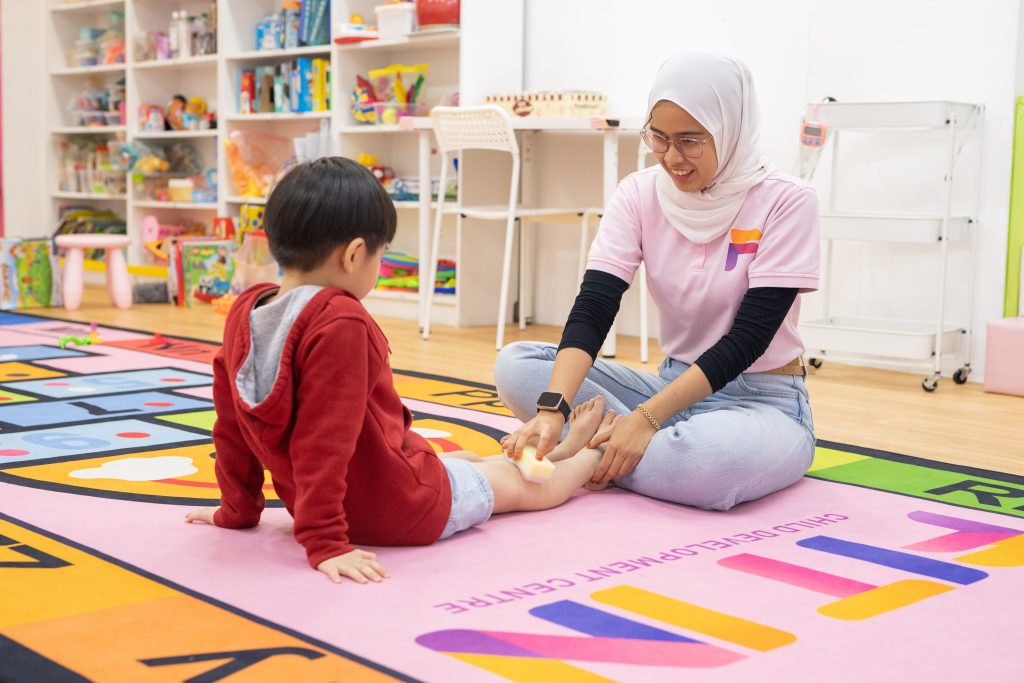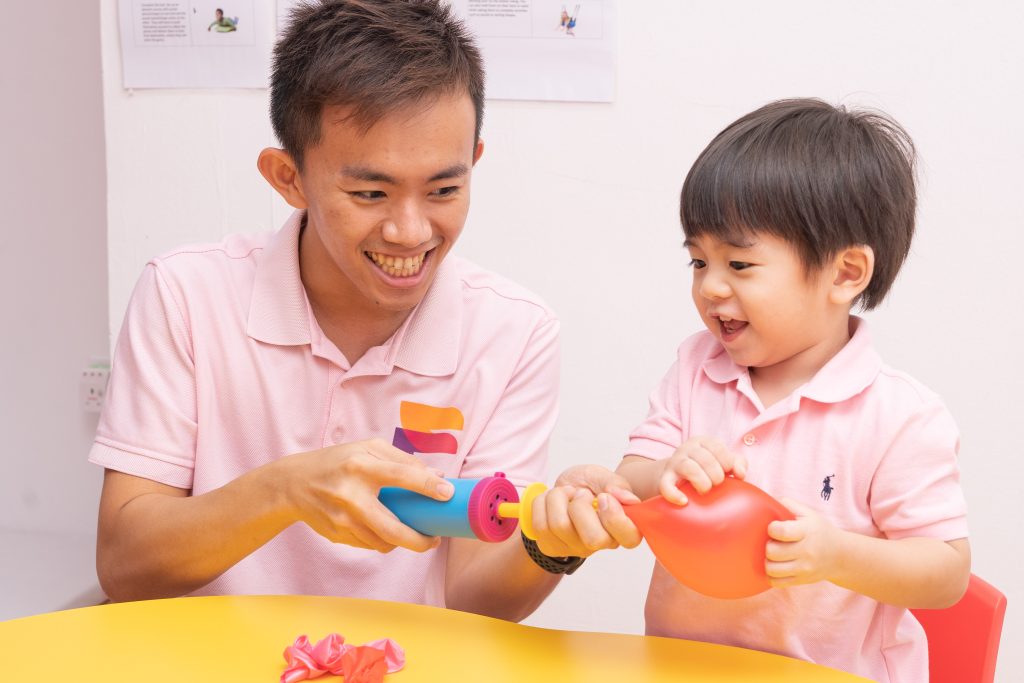Autism

Autism, or Autism Spectrum Disorder (ASD), is a neurodevelopmental disorder that affects social interaction, communication, and behavior. It is called a “spectrum disorder” because it manifests differently in each individual, with a wide range of symptoms and severity.
Key characteristics of autism may include challenges in social interaction and communication, repetitive behaviors, and a narrow focus on specific interests. Children with ASD might have difficulty understanding and responding to social cues, forming relationships, and communicating effectively. Additionally, they may engage in repetitive movements or have intense interests in specific topics.
ASD is typically diagnosed in early childhood, and early intervention with various therapeutic approaches such as ABA therapy, speech and language therapy, and occupational therapy can significantly improve outcomes for children with autism. The exact cause of autism is not fully understood, and it is believed to involve a combination of genetic, neurological, and environmental factors.
It’s important to recognize and respect the unique strengths and challenges of children with autism and provide support tailored to their specific needs.

Social Communication and Interaction Skills
- Does not keep or avoids eye contact.
- At 9 months of age, they do not respond to their name being called.
- Lack of facial expressions showing happiness, sadness, anger and surprise at 9 months of age
- At 12 months of age, does not play simple interactive games.
- Uses few or no gestures by 12 months of age (for example, they do not wave goodbye)
- Does not share their interests with others by 15 months of age.
- Does not point out interesting things by 18 months of age.
- By 24 months of age, does not notice when others are hurt or upset.
- Does not join other children in play by 36 months of age.
- Does not play pretend during play by 48 months of age.
- Does not sing, dance or act by 60 months of age.
Restricted or Repetitive Behaviors or Interests
- Lines up toys and objects, and gets upset when the order is changed.
- Repetition of words or phrases (echolalia)
- Plays with their toys the same way every time
- Heavily focused on specific parts of toys or objects.
- Is upset by minor changes.
- Must follow their routines.
- Repetitive body movements such as flapping hands/arms, rocking their body or spinning themselves in circles.
- Unusual reaction to the way things sound, smell, look, taste, or feel.
Other characteristics:
- Delayed language skills
- Delayed movement skills.
- Delayed cognitive or learning skills.
- Hyperactive, impulsive and/or inattentive behavior.
- Epilepsy or seizure disorder
- Unusual eating and sleeping habits
- Gastrointestinal issues (for example, constipation)
- Unusual mood or emotional reactions
- Anxiety, stress, or excessive worry
- Lack of fear or more fear than expected

Treatments offered
At FIT-IN, under our early intervention program our team works together with the family to come up with a plan that best suits the needs for the child. All of our treatment sessions are one to one with the child and tailored to the child’s needs The usual treatments for autism symptoms can be broken down into two types, behavioral and developmental. For behavioral, we conduct Applied Behavioral Analysis (ABA) therapy, which is widely regarded as by researchers as the most effective treatment for autism symptoms. We use ABA therapy to encourage good behavior and desirable actions with positive reinforcement, and discourage less desirable actions.
As for developmental, we provide occupational therapy, speech and language therapy, and sensory integration therapy. Occupational therapy teaches the children their basic living skills such as dressing themselves, self hygiene, cooking and cleaning. Speech and language helps the children improve their skills in communication and provides them with the confidence to speak to others. As some children with autism may have issues processing sensory input (overloaded or underloaded), our sensory integration therapy helps them understand and regulate their sensory input, along with teaching them how to become more comfortable in different stimulating environments.
If you suspect your child to have any of the symptoms above, please feel free to contact our teams at the nearest branch to schedule an appointment for a developmental assessment along with treatment.
Contact Us
Cyberjaya
FR-02-08 & FR-03-08, Tamarind Suites,
Persiaran Multimedia, Cyber 10,
63000 Cyberjaya, Selangor
+6 018-388 3590
Senior Centre Manager – Mr Shafiq
+60 11-1153 6388
Therapist – Mr Hong
Bukit Jelutong
No 7-1, Jalan Ungu B U9/B,
Sunway Kayangan, Section, U9,
40150 Shah Alam, Selangor
+60 18-664 6074
Centre Manager – Ms Yee
+60 11-1152 6074
Assistant Manager – Ms Anis
Bandar Menjalara, KL
59-1 Jalan Medan Putra 1,
Medan Putra Business Centre,
52200 Kepong, Kuala Lumpur
+60 11-1153 6388
Senior Centre Manager – Mr Chu
+60 11-1152 6074
Assistant Manager – Ms Anis
Eco Majestic, Semenyih
12A-2, Jalan Eco Majestic 10/1D,
Eco Majestic, 43500 Semenyih,
Selangor
+60 11-1138 8359
Centre Manager – Mr Zan
+60 11-1168 6074
Senior Therapist – Ms Adda
Eco Santuari, Telok Panglima Garang
2A-1, Jalan Eco Sanctuary 8/1A,
Eco Santuari, 42500 Telok Panglima Garang,
Kuala Langat, Selangor
+60 11-1168 6074
Senior Therapist – Ms Adda
+60 11-1153 6388
Therapist – Mr Hong


 Book Assessment
Book Assessment